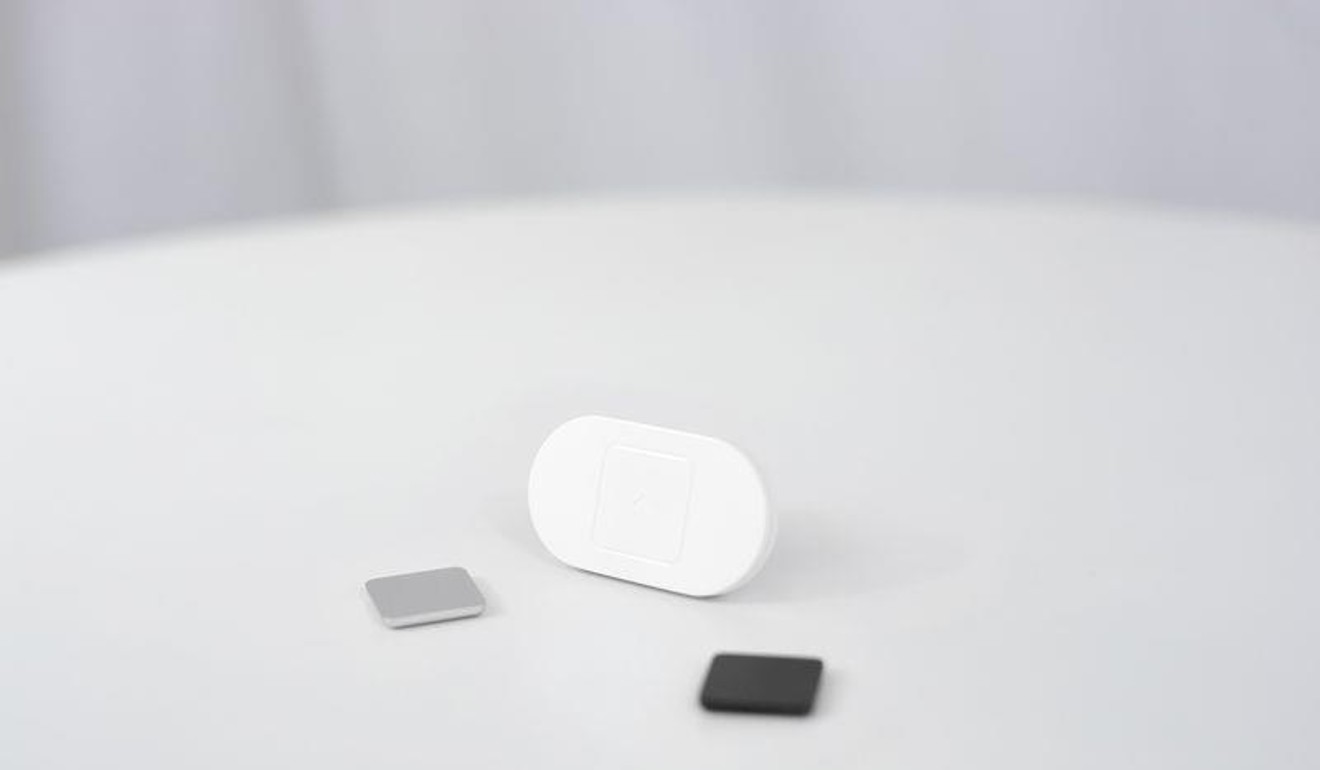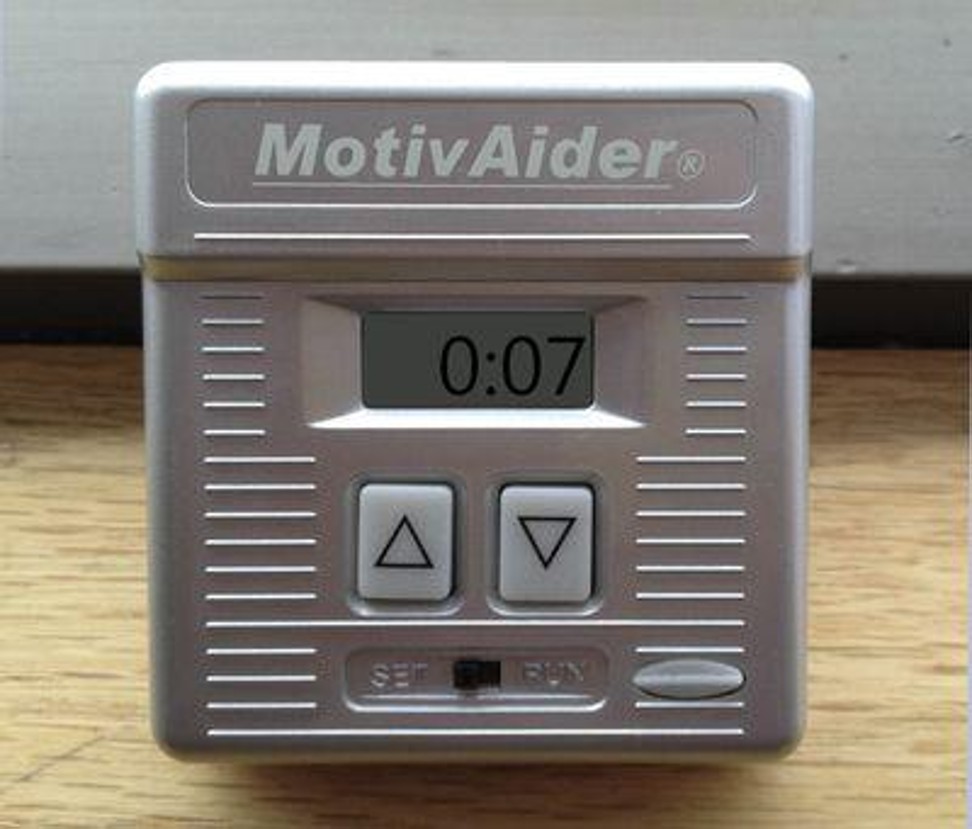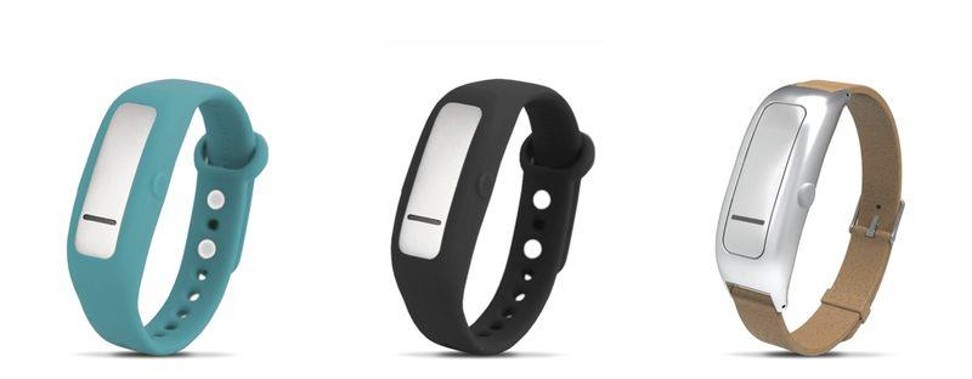After Erin Hiscock’s mother and brother passed away – both of them morbidly obese – she resolved to tackle her own weight problem. “I was maybe 310 pounds [140kg] at my heaviest and severely addicted to sugar,” she says. “Instead of a normal meal, I’d just eat carbs, sugar, nothing nutritious.”
Hiscock, a 35-year insurance agent in Virginia, the United States, didn’t turn to diet books, Weight Watchers, or even hypnotherapy, though. Instead, she bought a Pavlok. Like a Fitbit in a foul mood, the Pavlok wristband delivers a sharp, harmless shock on demand when the user presses a button on the device or in a smartphone app. “Any time I had sugar cravings, I would shock myself,” she says, “like when I was eating chocolate.”
That was 18 months ago, and Hiscock has since lost almost half her body weight under Pavlok’s stinging gaze.
She became such a believer that she now wears three devices simultaneously, 24 hours a day, and relies on Pavlok to do more than just monitor her food intake. “I have bad sleep patterns – I’ve actually fallen asleep behind the wheel,” Hiscock explains. “A normal alarm clock wasn’t helping me wake up each morning, as I’d sleep through it. But Pavlok gets me to work on time and helps me stay awake during the day.”

It’s a simple gadget: a silicone wristband that syncs with a smartphone app via Bluetooth and can be charged with a USB cable, like a typical wearable (it costs US$179). It’s the brainchild of Californian entrepreneur Maneesh Sethi, who earned internet notoriety six years ago for a stunt he called the Craigslist Slapper Experiment. Having long struggled with focus and concentration, Sethi hired a stranger to slap him whenever he toggled to a non-work site on his laptop. He claimed it improved his productivity by 98 per cent – PR-savvy prep, indeed, for the gadget he would go on to launch in 2015.
5 ways to go vegan this Veganuary
Of course, using technology to retrain ourselves isn’t novel – countless apps, from Headspace to HabitBull, promise to curtail or curb bad habits. It’s a far bigger commitment to invest in hardware to hardwire new behaviour into the brain. Along with Pavlok, there’s RE-vibe ($US99.95), a child-aimed wristband akin to digital Ritalin that is meant to help children stay on task and better learn routines through a series of vibrating reminders and cues.
The Keen bracelet (US$149 upwards), from start-up HabitAware, grew out of founder Aneela Idnani Kumar’s two-decade struggle with trichotillomania, a disorder where sufferers distractedly pull out their own eyebrows and lashes. She devised a motion-sensing wristband that vibrates every time users make the gesture related to their habit – it’s recommended to help with nail-biting and skin-picking, too.
Apps and websites offer top tips on wines and spirits
Psychologist Steve Levinson devised his MotivAider in the 1980s: The pager-like device vibrated at intervals to nudge users to repeat a mantra to themselves, perhaps “Don’t grind your teeth”. He is relaunching the product later this year with several tech upgrades, aiming to capitalise on the new trend. “It does not take much to get the mind to work a whole lot better than it does on its own,” Levinson says. “You need a private tap on the shoulder to remind you of what you already know.”
UPRIGHT GO (US$99.95) and Lumo Lift (US$99.99) both promise to improve posture. Users are trained to sit upright by wearing an app-paired gadget, which warns them with a buzz if they begin slouching.
4 beauty gizmos for geeky Hong Kong go-getters
As for the kSafe, it’s an ideal twofer with Pavlok. This see-through cookie jar is timer-locked, from one minute to 10 days, and can’t be opened until the timer expires, even if the battery is removed. Inventor David Krippendorf suggests it can be used to sequester children’s devices for a period of time or for something as simple as keeping sugar cravings at bay. Krippendorf appeared on ABC’s Shark Tank in 2014 and earned a US$100,000 investment, in part from QVC Queen Lori Greiner.
Five apps to make life easier, and save time and money
Much like many of Mr Wonderful’s offers on Shark Tank, the allure of these devices seems too good to be true. Buy this affordable gadget, each seems to promise, and you can effortlessly correct your worst habits. So can they work? Elspeth Kirkman believes they might. She is part of the Behavioural Insights programme, known as the “nudge unit” in London, set up by former British prime minister David Cameron when he was in office. Its team of behavioural scientists was tasked with tweaking public behaviour using psychology; they were so successful that the group was spun off into a for-profit subsidiary, which now has offices worldwide.
“The basic principle of behavioural science is that we have two modes of operation: our slow, deliberative mode of thinking and fast autopilot. Most of the time we’re running on autopilot, and what a product can do is simulate the slow, thoughtful version of yourself,” Kirkman says. “Products like these can help you change your habits. The key is that it has to be really easy for you to use, removing any of the friction that requires you to be better than we human beings are, when the bad behaviour is looming.”
7 wellness trends that are here to stay
The BI team believes in this science enough that it has started its own training system, the Good Habit Lab, where companies can encourage healthy behaviour in their employees.
The science she cites is reliant on findings unearthed in the 1930s, when Harvard psychologist B.F. Skinner coined the phrase “operant conditioning”. The behaviour of rats, he noticed, could be moulded and shaped by either positive or negative reinforcement. (Colloquially, we call that aversion therapy.)
Translating this theory for use with humans brings additional factors, as Kirkman explains: will power, for example, which has been much debated in her field. “People have different thresholds at which they’ll give in to temptation,” she says, noting one theory that likens it to a muscle.
‘Float’, like Uber for yachts, means on-demand access to a luxury lifestyle
Like your quads or glutes, will power will weaken after too much flexing, a phenomenon known as cognitive depletion. Constant resistance to temptation in the morning, in other words, could weaken your resolve post-lunch. Indeed, studies have shown that doctors tend to prescribe more antibiotics to patients they see in the afternoon than in the morning, suggesting that their propensity to say no wanes as they are worn down.
But the most impactful factor on habit-changing – both effectiveness and speed – is accountability; Kirkman calls it the “Jiminy Cricket on your shoulder”. Many people promise themselves they’ll write a novel, she adds, but statistically the likelihood of completing one rises drastically when that intention is made public – telling friends, for instance, or simply posting it Facebook.
Louboutinize: Christian Louboutin launches photo filter app
It’s no coincidence, then, that Pavlok and other apps have emerged in a social media-soaked era, or that each company is keen to encourage users to connect and trade stories – as Pavlok aficionado Hiscock has done. “There’s a huge, really strong community,” she says. “And I think we really support each other in our goals.” One of her own posts, showcasing photos of her before and after weight loss, reads: “Everyone keep rocking out their goals and setting new ones! Anything is possible.” Hiscock is unconcerned whether Pavlok worked for her thanks to the device alone, the help of her community, or a little of both. “It’s changed the way I’ve been able to function,” she says. “It really changed my life.”
{ All Hypnosis Feeds
via hypnotherapy - Google News http://ift.tt/2DwucMi
January 30, 2018 at 09:17PM




No comments:
Post a Comment